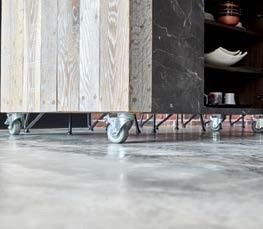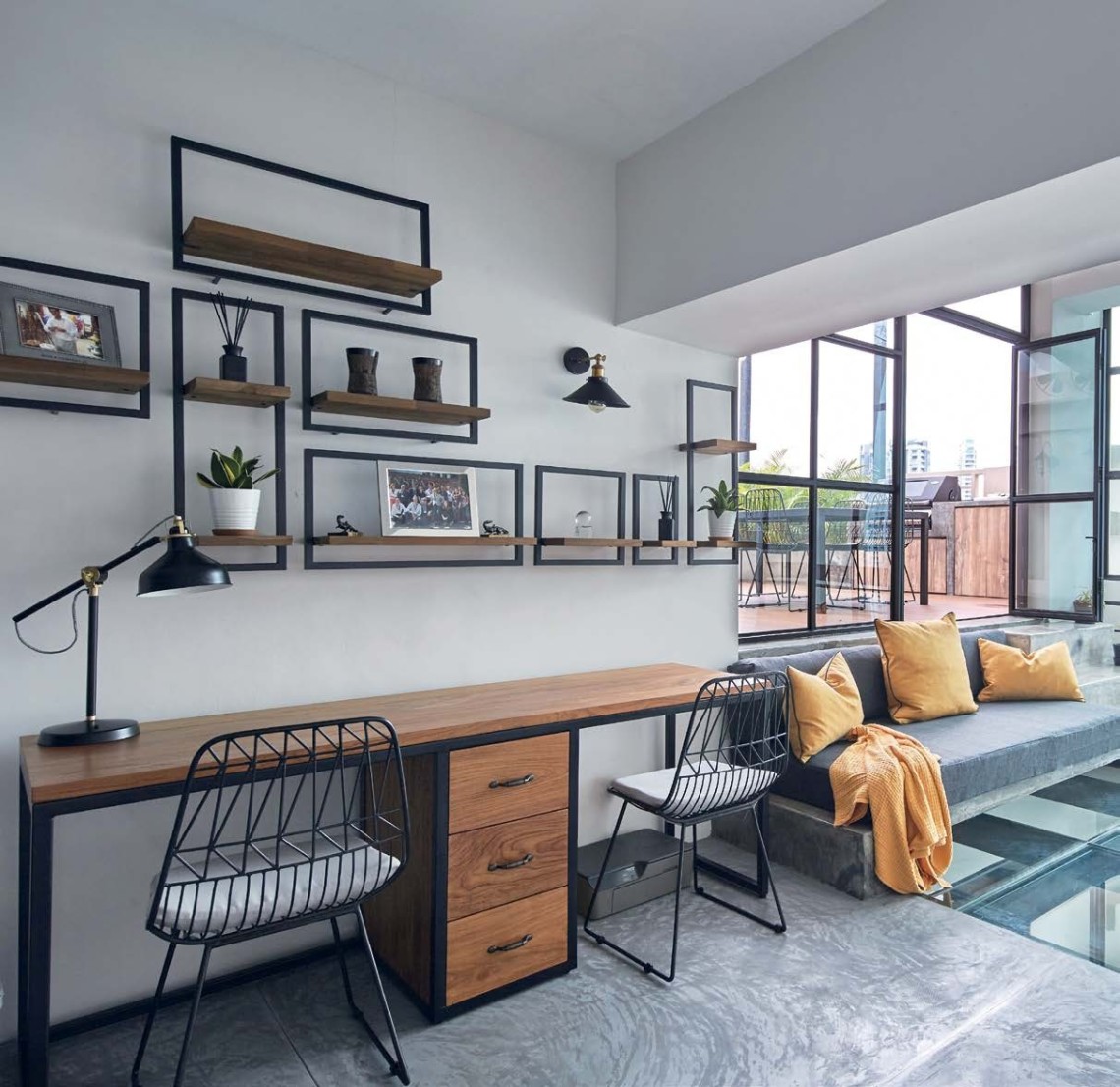An overhaul can be more beneficial than buying a new flat altogether.


An overhaul can be more beneficial than buying a new flat altogether. Eliza HamizaH finds out how this family beefed up the industrial-style look for its home.
Designer Ken Lee opted for a glass floor mezzanine as it creates more space, without compromising on the lengthening effect of a double-volume ceiling.

Food is at the centre of Gilberto and Cintia Gaeta’s lives. For the couple – he is Italian, she is Argentinian – cooking and having guests over to their three-bedroom penthouse is essential to remaining connected to their cultures and having a happy home. Ken Lee, principal designer of Space Matters, referenced this mindset in his design.
“The couple lived in the penthouse for six years before deciding on a major overhaul. The previous interior style was actually close to the look they had in mind, but I helped design a polished, cohesive version with better functionality,” he says.
We chat with Gilberto and Cintia to find out what went into the $250,000 renovation.
WHY A REVAMP, INSTEAD OF GETTING A NEW APARTMENT?
We did not want to lose the fantastic location and view. Furthermore, we realised a renovation was a more economical choice. The revamp allowed us to use the space better; we created a glass-floor mezzanine, replaced the rarely used jacuzzi with a barbecue pit, as well as customised an island-on-wheels that better fits our lifestyle.
HOW DOES THE MEZZANINE IMPROVE THE HOME?
We entertain often, so there is now more room for guests. It also connects the master bedroom and bathroom – the latter is a new addition – to the patio, improving accessibility to all parts of the house. We also have a double-door so the kids can sleep in their firstfloor bedroom while we party upstairs. We chose a glass ceiling as it maintains the natural light streaming into the home.
TELL US HOW FOOD WAS INSTRUMENTAL TO THE DESIGN.
We love cooking for family and friends, be it baking croissants and tiramisu or cooking meat on the patio upstairs. Gilberto: I love the movable kitchen island, on which I often prep food and bake. I can keep it where it is – to keep the conversation with guests going while Cintia cooks, or even involve them in the food prep – or move it to the side, should we need more walking space in the living room. We also notice that our guests tend to linger around the island before leaving, as it is such a cosy space.
Cintia: I love having lunch with friends on the patio. We designed it to be fairly independent from the kitchen downstairs. It has a fridge, hob and sink so we do not have to leave our guests to get more drinks and food. Sometimes, we do starters on the first floor, and end the day on the second level.
HOW DID YOU MAINTAIN AN AUTHENTIC INDUSTRIAL THEME FOR THE HOME?
We sourced authentically rustic accessories that have a weathered look as much as we could, and a lot of it – such as the wooden coffee table – were eventually bought overseas. We found that the selection in Singapore was too refined for our taste. The sinks in the master bedroom were from Indonesia; the bronze shower fittings, as well as leather couch, were from Thailand. The wheel lamp in the patio is made out of real barn wheels. Ken also advised us that concrete flooring would crack, but we are fine with that. He also designed our wardrobes with mesh glass doors.


The island doubles as a workspace. Cintia takes lots of night calls, and this enables her to work without disturbing her sleeping family.
Additional storage space and wheels were included, to make the stained solid oak wood kitchen island more functional.



As the couple had no use for an additional bedroom, they knocked down the walls and turned it into a cosy space for hanging out.
The wellventilated patio is the ideal place for brunches and barbecues.



Vibrant hues, such as orange and blue, were used in the bedrooms.
The bathrooms feature comicesque wall art, as Gilberto wanted a playful touch.

PHOTOGRAPHY DARREN CHANG ART DIRECTION NONIE CHEN























